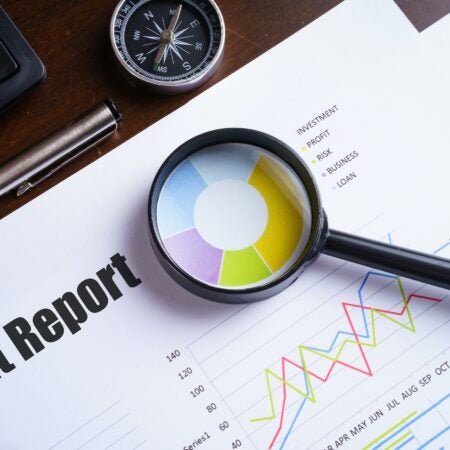A large number of Americans today deal with many different types of debt, and may be wondering about the ways in which it will all affect their credit standings. However, there’s one specific kind of debt that does not work in quite the same way as others, and therefore it should be approached a little differently.
Medical debt is something many Americans carry but might treat in a somewhat different way than their credit card or auto loan balances, and with good reason. This is because for the most part, medical debt will not show up on their credit reports — and consequently will not be factored into the scores — unless things go awry. For this reason, it may be a very wise idea to avoid any potential issues that may come up related to not paying their bills on time and in full.
When does medical debt count for credit?
While millions of Americans may owe significant amounts of money to healthcare providers as a result of debt incurred when receiving medical treatment — and often, this happens despite the fact that they have insurance — medical debt only becomes a factor that affects that credit when they start missing payments and have their balances sent to a collections agency. As a consequence, it’s of the utmost importance that borrowers make sure they pay all their medical debts as much as they possibly can to avoid this kind of negative mark taking a potentially huge toll on their credit standings.
While many consumers may owe thousands of dollars or more to healthcare providers, the unfortunate truth is that even small medical debt, such as missed co-pays of just $20, for instance, can do a significant amount of damage when it goes off to collections, and that likely won’t be remediated simply by paying the bill. And unfortunately for patients who receive care and then incur such debt, it can often be somewhat difficult to figure out how these debts can be approached; it’s not uncommon for consumers to not even know they had such a balance outstanding, and therefore having it sent to collections will likewise affect them negatively. Typically, hospitals and other care providers don’t even have to alert consumers that such a balance is being sent to collections.
The ideal way for patients to deal with medical debt is for them to take the time to fully understand their repayment rules, typically by speaking with whichever department at the hospital is in charge of collections. This will help borrowers to better understand what is required of them when it comes to paying these bills, and also allow them to take a more reasonable approach to dealing with the balance left over from their treatments.
What can be done to address it?
Again, the best way to avoid having medical debt count negatively against a credit score is to ensure all necessary payments are being made on time and in full. This is because a debt sent to collections for medical bills is treated no differently when calculating a credit score than one from a credit card or auto lender, and therefore the toll it will take can be massive. The ability of consumers to pay on their balances every month accounts for 35 percent of their scores, and those who have debts sent to collections have likely missed a few months or more worth of payments. As such, it’s likely that their scores took significant tumbles during the intervening time, and as such the damage done will likely take longer to deal with.
The good news is that when it comes to credit score damage, it can be relatively simple — if time-consuming — to smooth over. However, the process typically takes a period of several months at least, and can often last a year or more. During this time, it is vital that borrowers follow all the good credit habits they can, including making all payments on time, keeping outstanding balances as low as possible and avoiding repeated attempts to apply for new credit.
Those who want to make sure their credit standing is as healthy as it possibly can be may also want to take the time to order copies of their credit reports and check these documents over closely. Doing so will help them to gain a better understanding of what is being used to calculate their credit scores, but moreover might also aid them in identifying any potentially unfair markings that may otherwise be having a negative impact on their standings. If any such entries are discovered, it could be helpful to contact a credit repair company, which may be able to assist them in clearing up these entries and returning themselves to where they deserve to be.






